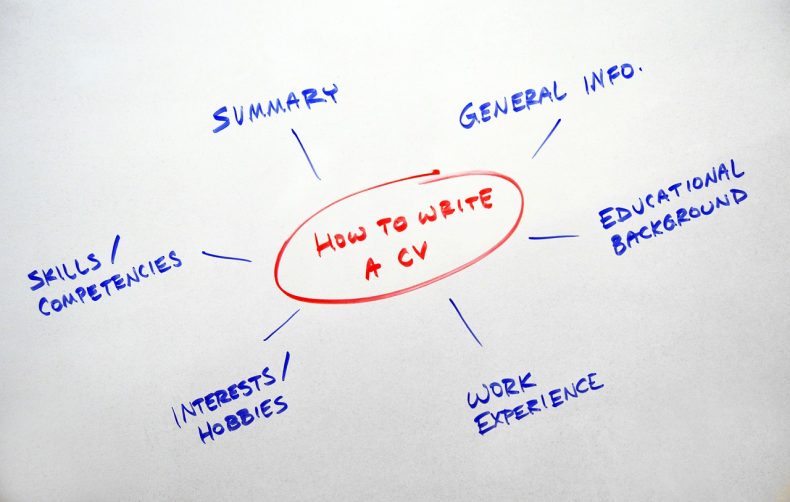The history of composing job application documents goes back several hundred years but the main goal of the paper still remains the same. A perfect resume has a special mission – to highlight the candidate’s strongest advantageous features and abilities.
As written self-presentation is the first and only common non-verbal and remote instrument to make a great impression on the prospective employer, it should have an incredibly good structure, design, and content. Only a correct combination of all these factors can lead to success.
An outstanding resume is able to open the way up to your career ladder. At the same time, reinforced by an impressive cover letter, it can give your employer even more information about your career prospects and plans. But mainly, it can explain the reasons for your profession and vacancy choice.

If you have never worked on your cover letter or want to improve it, a lot of web resources provide comprehensive instructions and ready solutions. For example, a multi-functional online service, www.getcoverletter.com, provides a builder of job application documents which allows customizing your user’s profile.
Nevertheless, to reach the desired result with your resume it’s important to follow a set of common rules and recommendations. An acceptable classical format of the self-presentation of job candidates should include four basic paragraphs, though there can be extra ones. So what items should your cover letter always possess?
- document header with contact info;
- strong opening part with a resume summary;
- definition of your current professional goal;
- educational background and extracurricular activities;
- previous working experience with lists of job duties;
- closing paragraph with a confident call to action.
HR managers should pay special attention to the resume chapter dedicated to previous employment history and the professional experience of a candidate. For many vacancies, it is a crucial requirement to have at least two or three years of employment history in a similar job position.
Work history verification as an effective tool for hiring decisions
Employment history verification is still a robust method of determining the best candidates for the vacant job position. It is an effective way to weed out fake resumes, degrees, references, and even false identities from the list of potential employees in the first stages of the verification process.
Famous British job interview coach Margaret Buj in her contributor’s article about the EHV process considers that an employment history check is something that job seekers always need to take into serious consideration. Employers are not joking around when they say they want to know what you’ve done in the past.
Through a work history verification, the company can refuse to make a job offer to a toxic person. Even if former employers will display only a small part of total information, it’s still worth the time for the hirer. Every detail can build up into a more concrete jurisdiction on the applicant. A job history check and report will also serve as a powerful defense against negligent hiring claims.
Some vacant positions will require not only the description of your previous career steps and personal employment history but also a certain amount of references from your past employers. It is always left on your choice to add them to your job application or not, though keep in mind that a person who provides a recommendation should be available to contact, in order to confirm the information and to discuss your candidacy advantages.
How do employers check employment history?
As a rule, large corporations trust job applicants’ working history check to the human resources or payroll department, but some organizations often hire third-party employment history verification services instead. Such procedures have to assure employers that a candidate has all the experience and qualifications listed on the resume.
A comprehensive review of your recent professional background can reveal former employers. Hiring managers or third-parties outsource investigators can use special software to verify employment. You can learn more about what is included in an employment background check from the article in the EmployeePast blog, where the process is described in detail.
As a rule, the background check includes the names of all the companies with which the candidate had worked, as well as the employment or working contract duration, job position titles, details about working duties, and earned salary if required. Employers verify work history in order to make sure that all the information in the applicant’s resume and career info is correct and accurate.
Most companies automatically screen all job application documents with an applicant tracking system even before searching for the details of your background. So before uploading your resume on the job board or sending it to your hiring manager, make sure it was created and saved in a traditional format. It is also a good common practice to use keywords to optimize a resume to get through the initial scans of ATS.
Your employer will still find out what you did last summer!
Despite the popular and rather nihilistic point of view that everybody lies and a resume is a blank canvas upon which to write fantasy, searching for a good job always means displaying your best professional and personal features. So why should you avoid the chance to prove that honesty is one of those?
After you get an invitation to a job interview, you should be prepared to answer questions related to some negative information from your previous professional background, which your hiring manager can uncover during employment verification checks.
In conclusion, there are some behavioral strategies to follow during your job-seeking and hiring process. You should keep in mind that most steps of the hiring process are resolved without the candidate’s presence. Most likely, a hiring manager already knows almost everything about you before inviting you for a job interview!
- Edit your profiles on social media. Recruiters will check your personal pages on Facebook and Instagram, so try to delete all unnecessary and unprofessional posts.
- Be sure that you have no skeletons in your closet. Remember that honesty is the best policy for your prospective employer and the most valuable feature on the labor market.
- Be yourself, but not “too yourself!” Some interview coaches advise perceiving a job interview as a “business speed dating”. Think about three parts of your image: how you look, what you are saying, and what you are writing about yourself in your resume!











